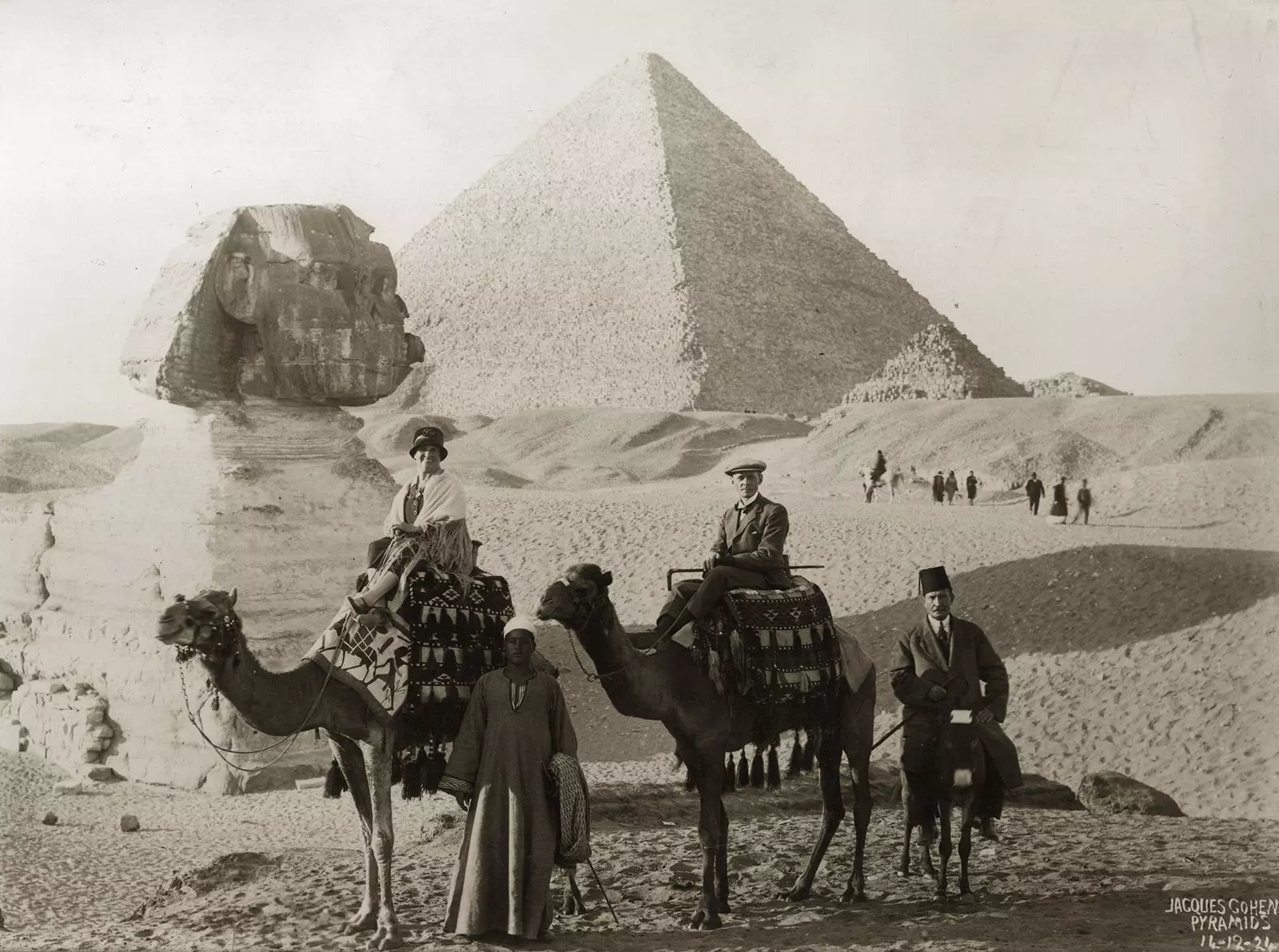
Madame Bovary in Egypt
Madame Bovary was bored. Flaubert , the creator of it, was bored. If she had followed her father's imposition of devoting herself to law, she would have found herself locked up, like Emma, somewhere in Normandy, drafting lawsuits about inheritance and boundaries. She took refuge in a fantasy fueled by romantic delusions; he could go further.
From childhood, Flaubert had cultivated an eccentricity protected by epilepsy . At twenty-four, his father's inheritance enabled him to abandon the law and devote himself to writing . Rouen, where he grew up, was a conservative, bourgeois city in the mid-19th century.
Yonville , the town in which the husband of Emma Bouvary practiced medicine, was created by Flaubert on the prejudices that surrounded him from his childhood. If Emma, drowned in her environment, counted on adultery as the only way of reaffirmation, her author directed her escape towards the trip, the great journey.
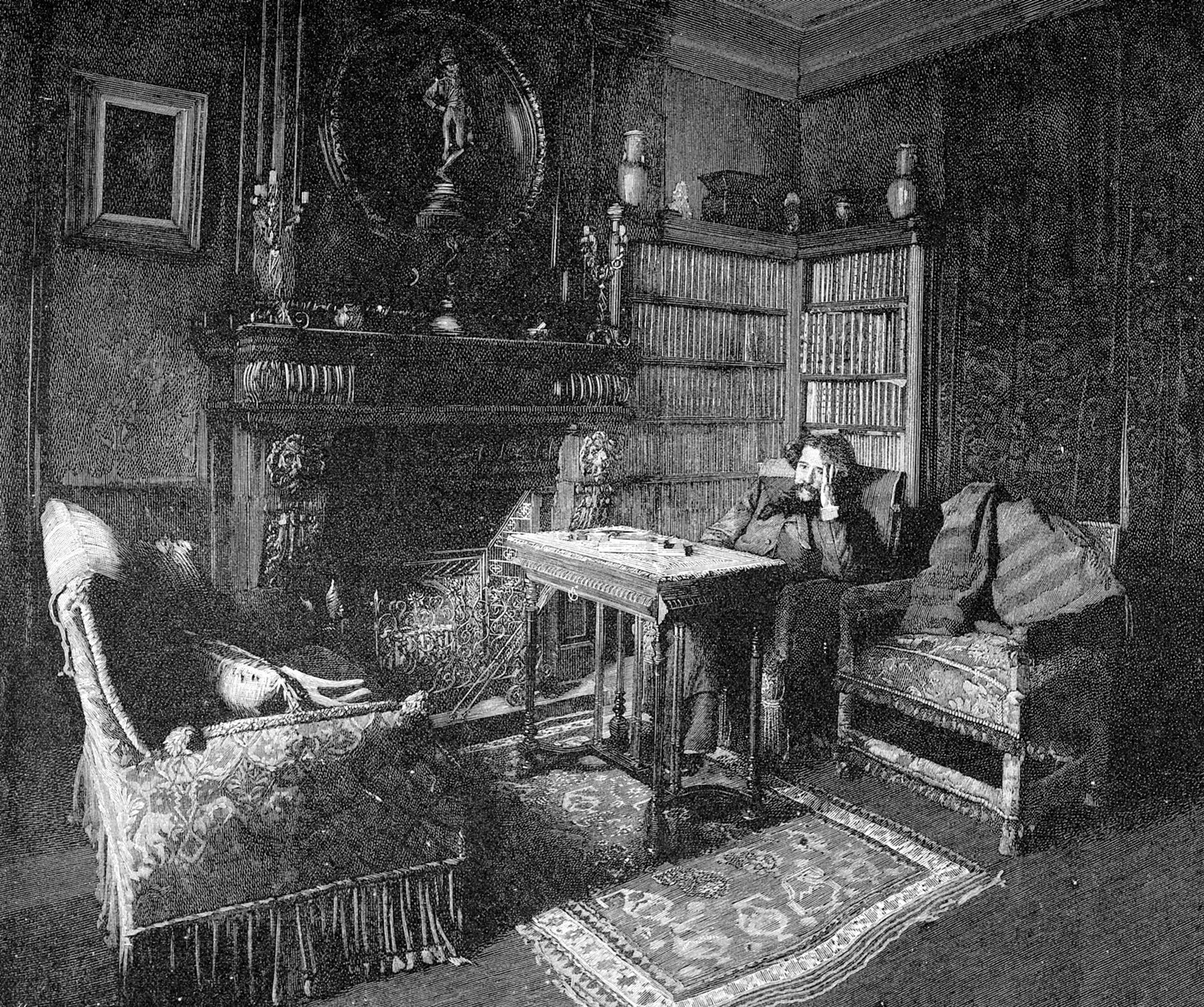
Flaubert, bored
The East then formed a diffuse geography that included the Muslim countries and a large part of Asia. the poetry of Byron , The works of Châteaubriand either Lamartine and the odalisques of Ingres and Delacroix blended into a territory that rents Flaubert's relatives They opened up like Aladdin's cave.
At the age of twenty-eight he had published excerpts from The temptation of San Antonio and his uneven reception reinforced his dissatisfaction. The decision to travel to Egypt with ** Maxime du Camp ** could be interpreted as an escape.
His partner's mission was document the monuments of Pharaonic Egypt for the Académie des Inscriptions . The baggage, which included the photographic equipment needed to make the calotypes, consisted of trunks weighing a half ton. It was unthinkable that a gentleman would take care of the logistics of that cargo, so Flaubert turned to Leclerc , a worker on the family estates, as a valet during the nine months of travel.
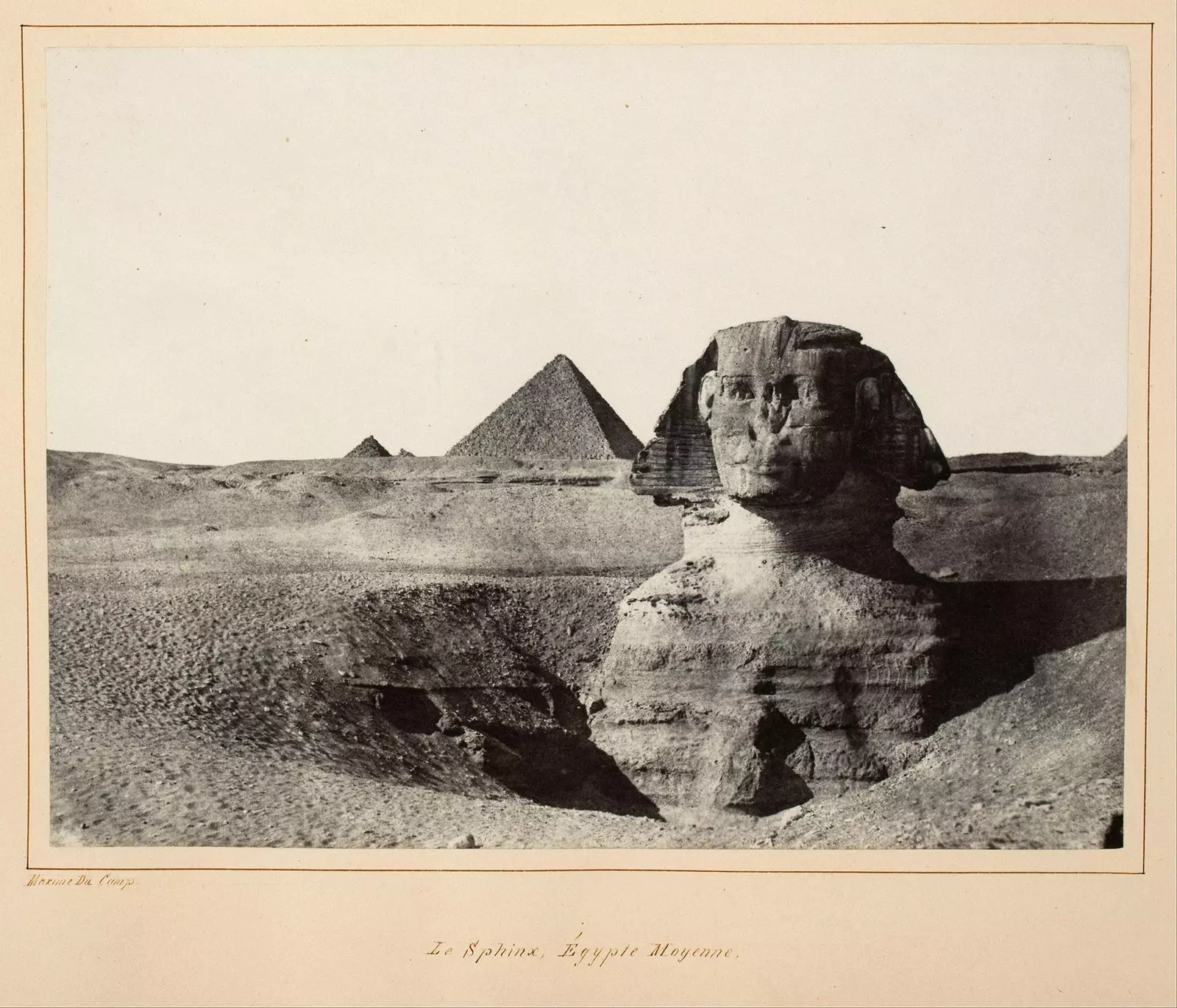
Photography by Maxime du Camp
The beginning of the itinerary happened by stagecoach and rail to Marseille , and from there on **the ship Le Nil, with a stop in La Valletta **. In his diaries and in correspondence with Louise Colet, his mistress Flaubert describes walks on deck and dinners with the captain. As during the rest of the trip, his account focuses on moods and in everyday details.
Avid, curious, restless, morbid and sensitive , his observations capture an atmosphere charged with emotional notes. His weapon was irony . As he himself states: "What prevents me from taking myself seriously, being essentially a serious person, is that I find myself extremely ridiculous."
Returning to France, the diaries were collected by Flaubert in the volume Voyage in Egypt , published posthumously in 1881 in a version that omitted the most explicit details, and whose manuscript was recovered in 1989 and published in its entirety.
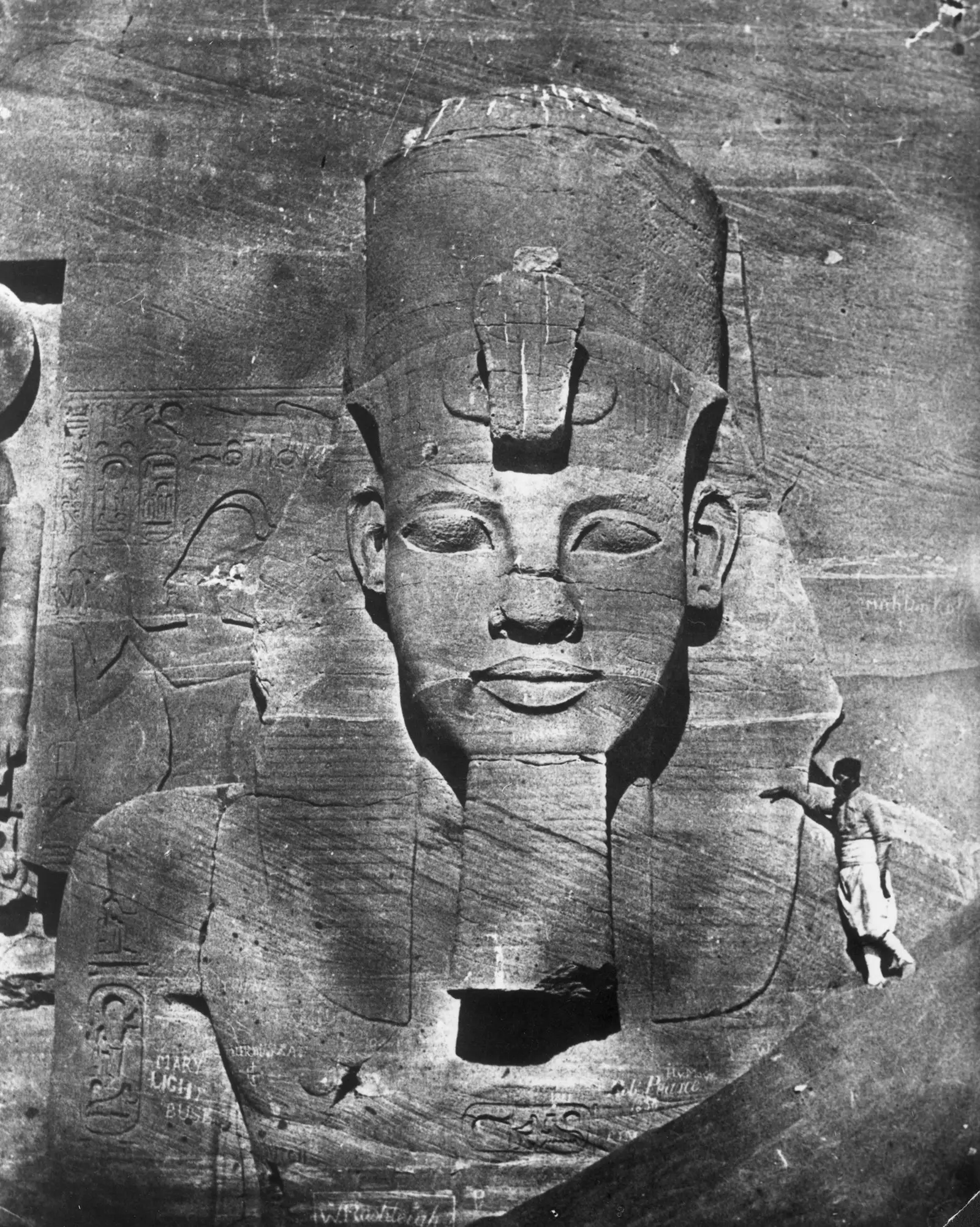
Photography by Maxime du Camp
THE EASTERN
Snake charmers, harems, minarets, camels, bazaars, pashas, spices and dervishes. That was the East for Flaubert . And all this assailed the disembark in Alexandria . For someone who viewed life as "essentially chaotic," disorder was the natural state of things. The trip was in the "harmony of the crazy", in the kaleidoscope, in the fusion of opposites.
Upon arrival, the travelers hired as an interpreter Joseph Brichetti, an Islamized Corsican who accompanied them during the trip. The long stay in Cairo allowed Flaubert to instruct himself in Muslim customs and to extend his contacts to the Armenian, Coptic and Greek community. Often, especially in the desert, he abandoned his flannel suit and wore a djellaba and a red fez . His brown skin and bushy beard made him pass for a native.
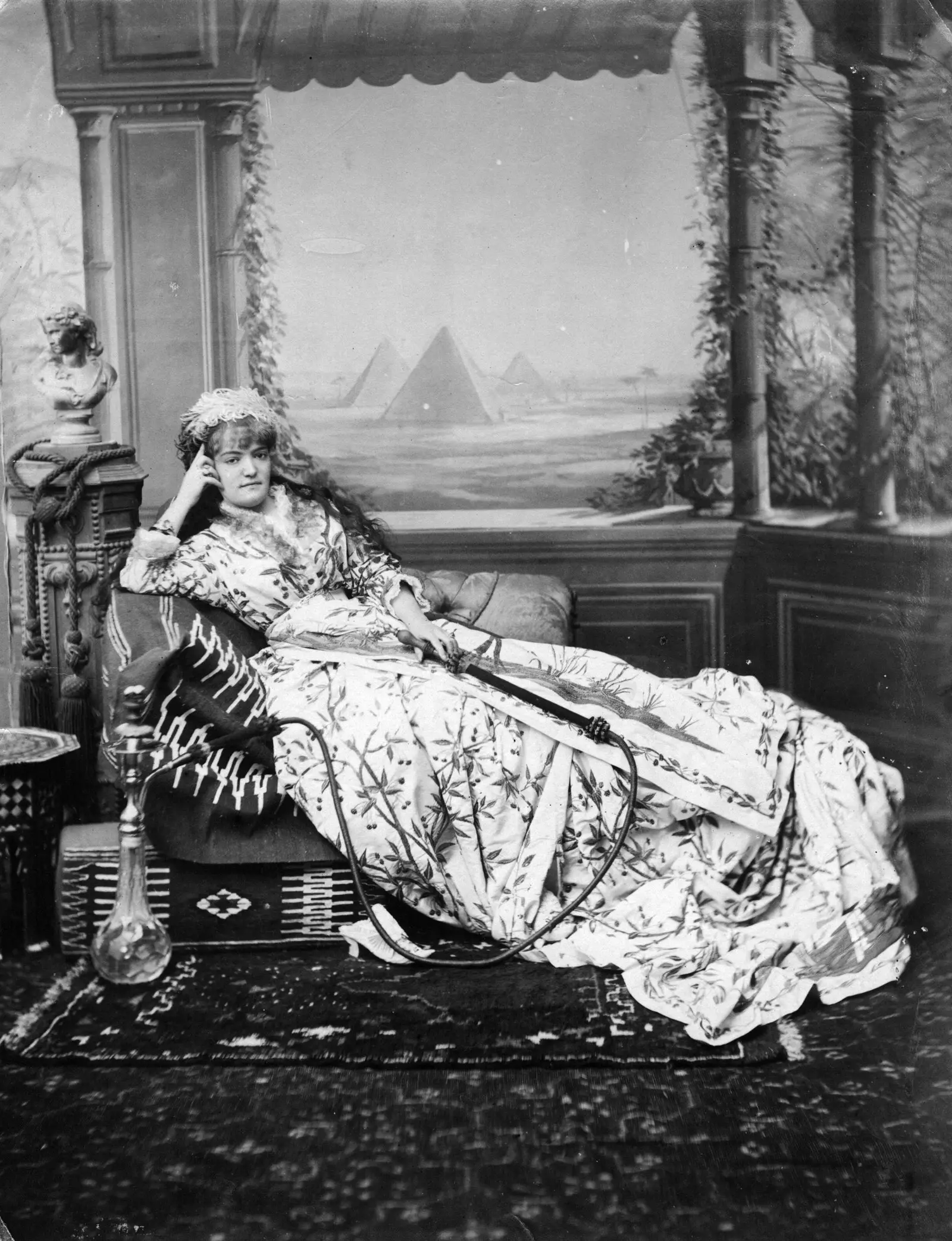
The oriental flavor of Victorian travelers
THE BIZARRE
In any country there is a line that separates the topic of the unknown . Flaubert, like a good transgressive bourgeois, crossed that line in search of a dimension of egypt which often bordered on the sordid. In his diaries appear lewd buffoons, obscene conversations, promiscuous holy men and an anecdote that, even today, is disturbing.
fond of mental sanatoriums , together with Du Camp, he paid a visit to the Sultan Hassan Mosque . There a black eunuch knelt while a naked woman practiced before him a strange dance. The tour continued to the syphilitic mamluk hospital and ended in dervish convent . The rhythm of the drums and the spinning ecstasy of the monks made a strong impression on him.
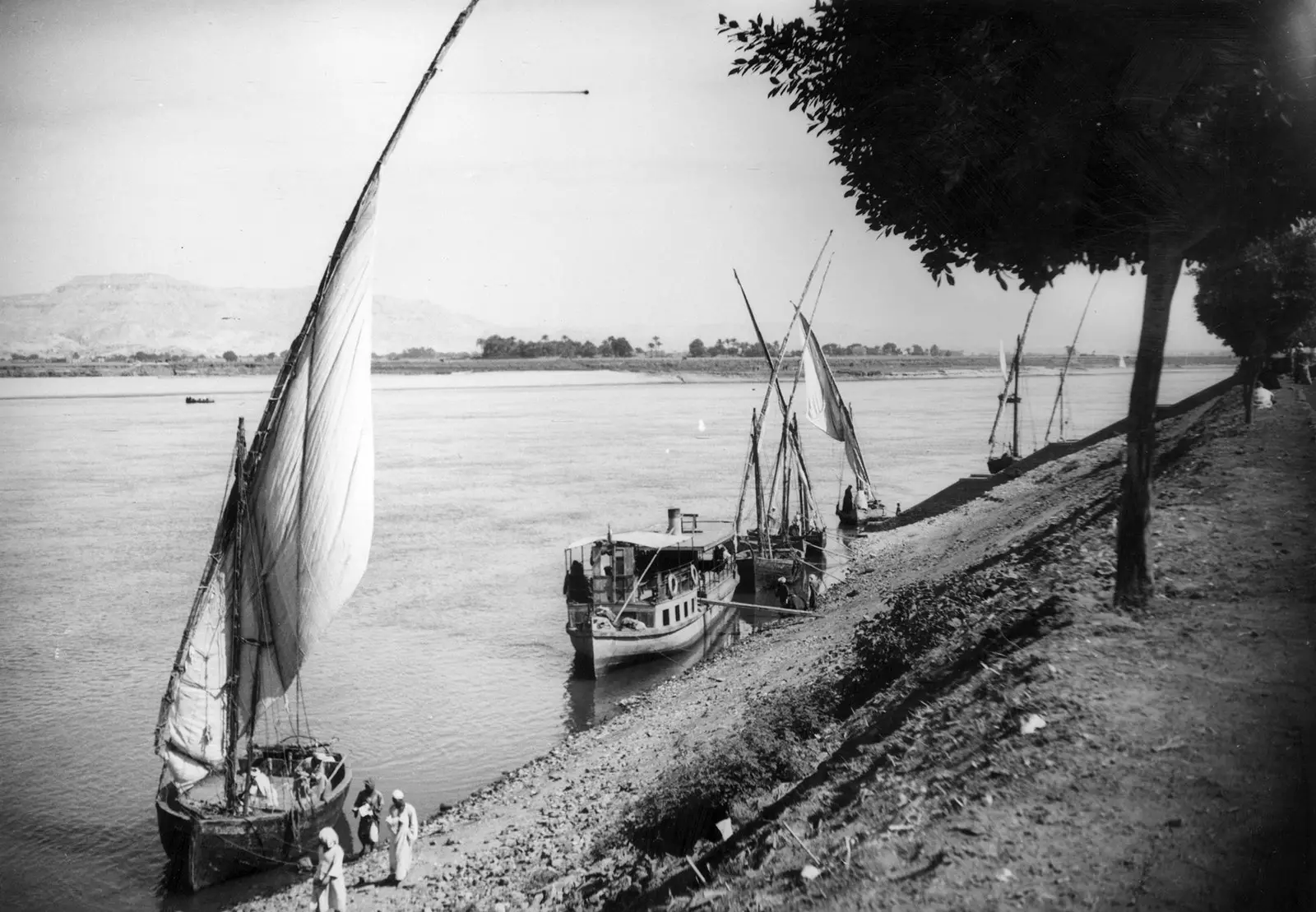
Crossing the Nile in Dahabiya
THE COURTESAN
Flaubert was a man receptive to pleasures. When he went to the baths, the male practice of allowing himself to be satisfied by the masseuses surprised him, but he did not hesitate to allow himself to be done. In his diary he commented that “Traveling to instruct ourselves on an official mission, we consider it our duty to give in to this type of game.”
During the trip, Flaubert and DuCamp they had shown a penchant for brothels. However, the great sexual revelation of the writer would not come until esna , about fifty kilometers south of Luxor.
The mullahs had banished a group of prostitutes who were plying their trade in Cairo. It is likely that Kuchuk Hanoum was one of them. Travelers first saw her at the top of the stairs of the house she ran. She wore pink silk pants, a purple chiffon blouse, a headdress with a green stone, and eyes marked with kohl. A tattoo of blue calligraphy snaked across her arm. Thick gold bracelets, necklaces and earrings gleamed on her black hair and dark skin.
The courtesan condensed in seventeen hours the deflagration that Flaubert expected from the East. The author reflected in his diary the five rounds of voluptuousness, alternated with coffee breaks and a fleeting visit of the Ptolemaic temple of Khnum – the ram god.
After the exhausting session, Kuchuk danced. The musicians were covered with a black veil. She moved her hips. Progressively, she folded her torso over her knees and, still playing the castanets, she picked up a cup of coffee from the floor with her teeth. That contortion alone justified Flaubert's enthusiasm.
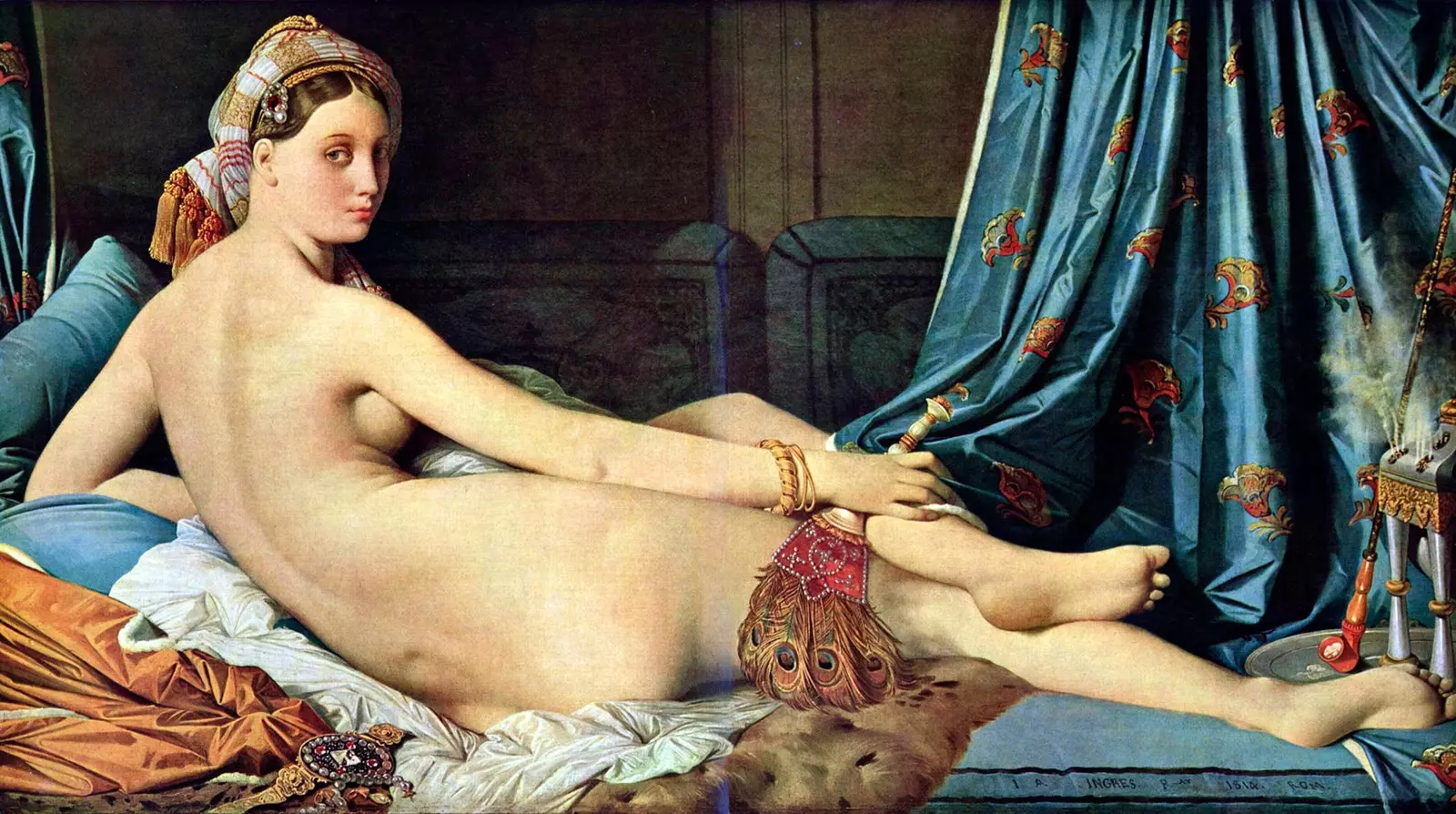
The Great Odalisque of Ingres
THE RUINS
The monuments of pharaonic Egypt failed to arouse in the author a passion equivalent to that of kuchuk . sunrise over the cheops pyramid she overwhelmed him, but that was scenery, challenge, experience.
Du Camp's work required constant stops to photograph the ruins, and it wasn't long before his partner showed his lack of interest. “ Egyptian temples bore me like churches in Brittany or waterfalls in the Pyrenees . Facing the ruins, contrary to what one might think, I am unable to think of anything”, he stated.
His stimuli came from the saturated and chromatic agitation that surrounded him, not from a past about which he lacked references. On his three-month journey down the Nile in Dahabiya – a sailboat with a small camera at the stern -, his descriptions focus on the flow of the river, on the peasants, on the palm trees and on the birds that populated the riverbank.
Only in Luxor did he say he was overwhelmed by the contrast between the grandeur of the ruins and the rusticity of the town. During his stay they settled in a Karnak temple chamber with a hookah, surrounded by scorpions.
He showed great enthusiasm for the tombs of the Valley of the Kings, that he traveled on horseback. The paintings, lit by torches in chambers and passageways, revealed a world hidden from view. His drive towards the morbid led him to acquire some fragments of mummies: hands, golden feet and a head with some hair.
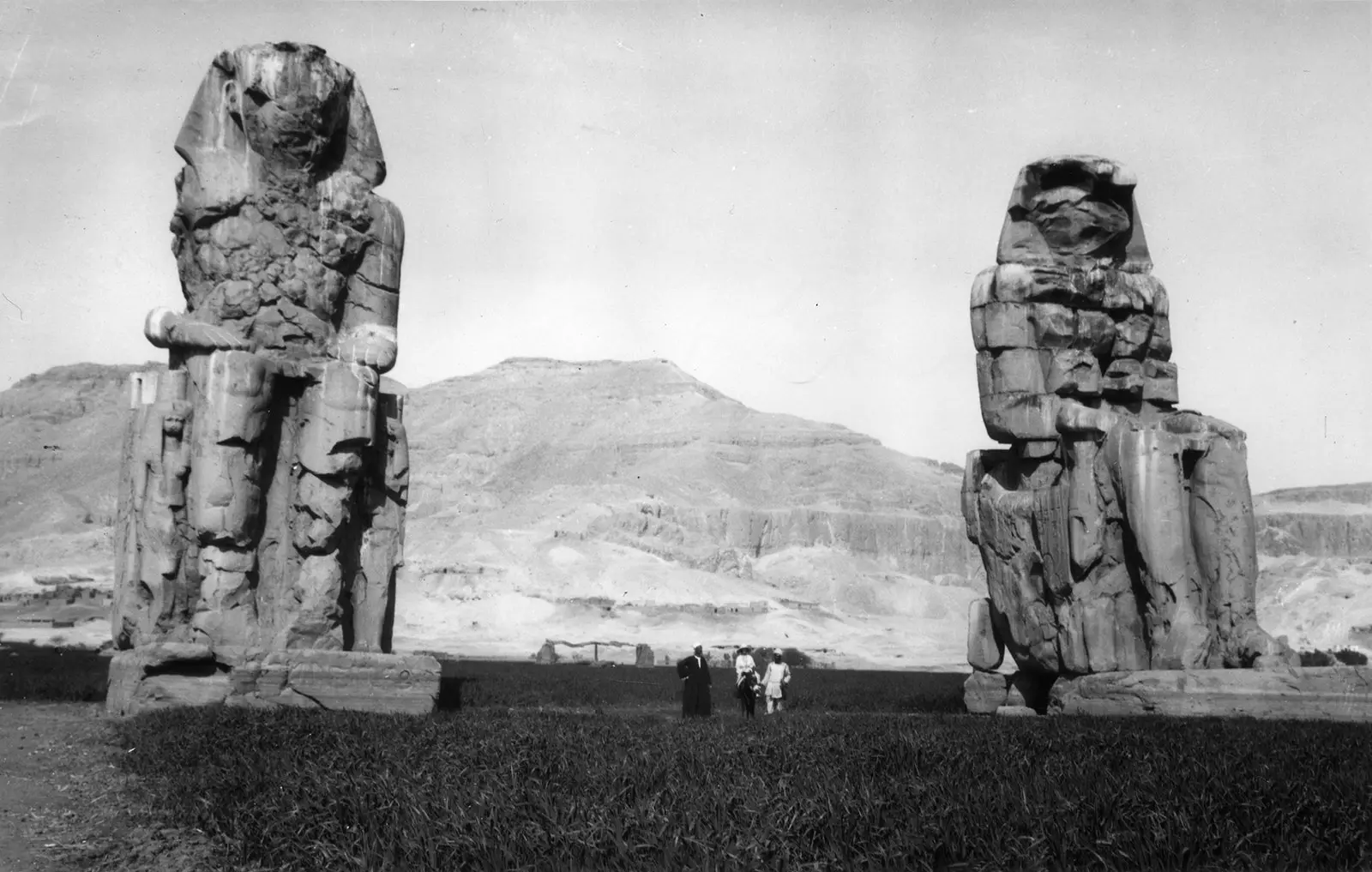
Karnak in Luxor
THE MELANCHOLY
After meeting Kuchuk, the journey continued south to Wadi Halfa . The trip had already reached its zenith. Flaubert suffered from a growing apathy that was reinforced by his estrangement from Du Camp. An outbreak of fever in a camel expedition through the desert to the Red Sea and his correspondence with his mother, which cast doubt on his future as a writer, accentuated his discomfort.
“I have in the depths of my soul the mist of the north that I have breathed since I was born. I carry in me the melancholy of barbarian peoples; a frantic aspiration towards the light” , he wrote to Louise Colet.
The aphorism: "Madame Bovary, c'est moi" part of this search. Emma tries to escape from that fog in romantic fantasies but, locked up in Yonville, she is unable to escape the prejudices of a closed society about herself.
Being a well-to-do man allowed Flaubert to escape and, on his return to France, recompose his position from irony. Some of the topics he ridicules in his Dictionary of received ideas they gain resonance from the perspective of his journey to the East.
Literature: it is the occupation of the idle.
Orientalist: man who has traveled a lot.
Pyramid : useless work.
Pleasure: obscene word.
Ruins: they make a landscape poetic.
Trip: must be done quickly.
*. For those who wish to read, or reread, Madame Bouvary, Flaubert's masterpiece Loewe has included the title in a collection of bound classics with photographs by Steven Meisel.
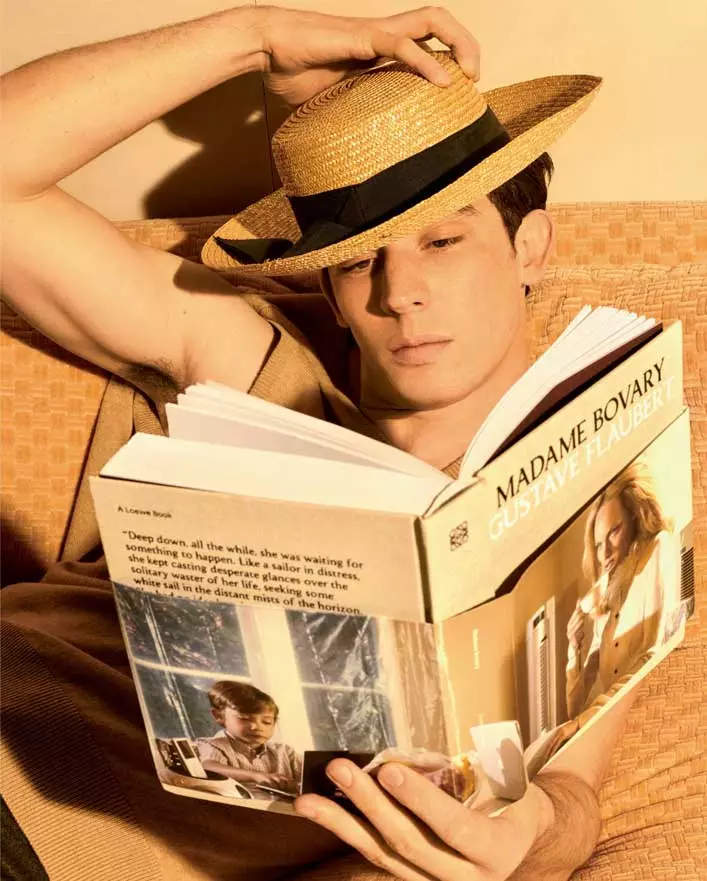
'Madame Bovary', according to Loewe
